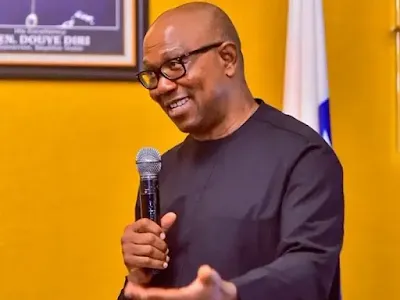
“Organised Manner”: Peter Obi on How He Would Have Handled Subsidy Removal, Naira Float
Peter Obi, former governor of Anambra State and 2023 presidential candidate for the Labour Party, has consistently advocated for the removal of Nigeria’s fuel subsidy and the floating of the naira. He views the fuel subsidy as a significant financial burden and a source of corruption, and he believes that allowing the naira to float would enhance economic stability.
Fuel Subsidy Removal
Obi has described the fuel subsidy as an “organised crime,” citing its substantial cost to the government and its role in perpetuating inefficiency and corruption. He has pointed out that over a decade, Nigeria spent approximately $40 billion on subsidies, a sum greater than the combined expenditure on critical sectors like education and healthcare. Obi argues that these funds could have been better utilized to improve infrastructure and public services .
While he supports the removal of the subsidy, Obi emphasizes the need for a structured approach. He criticizes the abrupt removal by the current administration, suggesting that a more thoughtful strategy, including stakeholder consultations and transparent allocation of saved funds, would have mitigated public backlash and ensured the benefits were felt in sectors like education, healthcare, and infrastructure.
Floating the Naira
Obi advocates for a unified foreign exchange market, moving away from the multiple exchange rate system that he believes discourages investment and exacerbates capital flight. He proposes floating the naira to allow market forces to determine its value, which he contends would stabilize the currency and attract foreign investment. To support this transition, Obi suggests implementing policies to boost exports and reduce import dependency, thereby improving the country’s foreign exchange reserves .
Critique of Current Policies
Obi has been critical of the current administration’s handling of economic reforms. He argues that the removal of the fuel subsidy was executed without adequate planning or transparency, leading to increased hardship for Nigerians. He believes that a more deliberate and transparent approach would have garnered public support and ensured that the savings from subsidy removal were effectively reinvested into the economy.
Conclusion
Peter Obi’s economic proposals focus on fiscal responsibility, transparency, and structural reforms. By advocating for the removal of the fuel subsidy and the floating of the naira, he aims to address systemic inefficiencies and create a more sustainable economic framework for Nigeria. However, he stresses that such reforms must be implemented thoughtfully, with clear plans for utilizing the resulting savings to benefit the broader population.